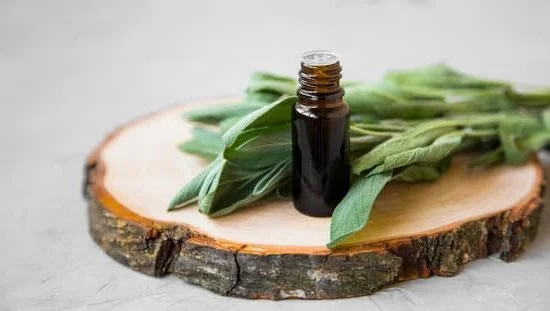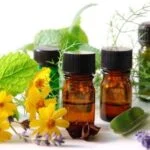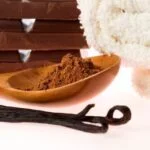Aromatherapy has been used for centuries as a natural healing remedy for various physical and emotional ailments. But does aromatherapy work for depression? In this article, we will explore the science behind aromatherapy and its effects on mood, essential oils that are beneficial for depression, how to use aromatherapy as a complementary treatment, and potential risks and side effects.
Aromatherapy involves the use of essential oils obtained from plants to improve psychological or physical well-being. These essential oils are typically inhaled or applied to the skin through massage or added to bath water. The practice is based on the belief that the aroma of these essential oils can stimulate brain function, including mood regulation.
Depression is a common mental health disorder characterized by persistent feelings of sadness and loss of interest in daily activities. It can have a significant impact on a person’s quality of life and overall well-being. As such, many individuals seek alternative or complementary treatments to help manage their symptoms.
In recent years, there has been an increasing interest in using aromatherapy as a potential solution for depression. But what does the scientific evidence say about its effectiveness? Let’s delve into the topic further to find out more.
Understanding Depression and Its Symptoms
Depression is a common but serious mood disorder that can negatively affect how a person feels, thinks, and handles daily activities. While everyone may feel sad or moody at times, depression is different in that it is persistent and can interfere with everyday life. Some common symptoms of depression include:
- Persistent sad, anxious, or “empty” mood
- Feelings of hopelessness or pessimism
- Irritability
- Loss of interest in hobbies or activities
- Fatigue and decreased energy
- Changes in appetite and weight
- Difficulty sleeping or oversleeping
Understanding the symptoms of depression is crucial in identifying when to seek help from a professional. It’s important to note that aromatherapy should not be used as a sole treatment for depression, but rather as a complementary method alongside other treatments such as therapy or medication.
It’s important for individuals with depression to seek professional help and not rely solely on aromatherapy as a treatment for their condition. However, incorporating aromatherapy into their self-care routine may help reduce stress and improve overall well-being when used in combination with other therapeutic approaches.
The Science Behind Aromatherapy and Its Effects on Mood
Aromatherapy is the use of essential oils extracted from plants for therapeutic purposes. These essential oils are often inhaled or applied to the skin and have been used for centuries to promote relaxation, improve mood, and alleviate various ailments. But how does aromatherapy work for depression?
The sense of smell is closely linked to the brain’s emotional center, the limbic system. When we inhale an aroma, it travels through the nose and into the olfactory system, where it can have a direct impact on emotions and memory. This is why certain scents can trigger specific feelings or memories. Aromatherapy harnesses this connection between scent and emotion to help improve mood and reduce symptoms of depression.
Research has shown that certain essential oils used in aromatherapy have the ability to affect neurotransmitters in the brain, such as serotonin and dopamine, which play a key role in regulating mood. For example, lavender essential oil has been found to have a calming effect on the nervous system and can help reduce anxiety and promote relaxation. Similarly, citrus essential oils like bergamot or orange have been shown to have mood-boosting properties.
In addition to affecting neurotransmitters, some essential oils also possess anti-inflammatory and antioxidant properties that can help support overall mental well-being. For example, frankincense essential oil has been studied for its potential anti-depressant effects due to its ability to reduce inflammation in the brain. These scientific findings suggest that there is indeed a basis for using aromatherapy as a complementary treatment for depression.
| Essential Oil | Benefits |
|---|---|
| Lavender | Calming effect on nervous system, reduces anxiety |
| Bergamot or Orange | Mood-boosting properties |
| Frankincense | Potential anti-depressant effects due to reduction of brain inflammation |
Essential Oils for Depression and Their Benefits
Aromatherapy has been used for centuries as a potential treatment for various physical and mental health conditions. Essential oils, which are the main components of aromatherapy, are extracted from plants and have been shown to have potential mood-enhancing effects. When it comes to depression, essential oils can offer a natural alternative or complementary treatment to traditional medications and therapy.
Some essential oils have been found to have specific benefits for individuals struggling with depression. These oils can help alleviate symptoms such as sadness, low energy, insomnia, and anxiety. Some of the most commonly used essential oils for depression include:
- Lavender: Known for its calming properties, lavender essential oil can help reduce anxiety and improve sleep quality.
- Bergamot: This citrusy oil has been shown to uplift mood and increase feelings of happiness.
- Ylang Ylang: With its sweet floral scent, ylang ylang essential oil can aid in reducing stress and promoting relaxation.
In addition to these oils, others such as chamomile, jasmine, and frankincense have also shown promise in helping with depression symptoms. It’s important to note that the effectiveness of each essential oil may vary from person to person, so it’s crucial to find the right combination that works best for each individual.
When using essential oils for depression, there are various methods of application that can be effective:The keyword “does aromatherapy work for depression” should be rubbed onto the skin after being diluted with a carrier oil such as coconut or jojoba oil.
How to Use Aromatherapy for Depression
Aromatherapy has been used for centuries as a natural remedy to alleviate various physical and mental health conditions. When it comes to using aromatherapy for depression, there are several ways to incorporate essential oils into your daily routine to help improve mood and reduce symptoms.
Diffusion
One of the most common ways to use aromatherapy for depression is through diffusion. By adding a few drops of an essential oil such as lavender, bergamot, or chamomile to a diffuser, you can fill the air with the soothing scent of the oil.
As you breathe in the aroma, it can have a calming and uplifting effect on your mood. Diffusing essential oils can be especially beneficial during times of stress or when feelings of sadness or low energy are prevalent.
Topical Application
Another method for using aromatherapy for depression is through topical application. Essential oils can be diluted in a carrier oil such as coconut oil or almond oil and applied directly to the skin.
This allows the therapeutic properties of the oils to be absorbed into the body through massage or simply by applying them to pulse points, such as wrists or temples. Not only does this method provide a sensory experience, but it also offers potential relief from symptoms associated with depression.
Bathing
Adding essential oils to a warm bath is another effective way to use aromatherapy for depression. The combination of warm water and aromatic oils creates a relaxing environment that can help ease feelings of tension and promote a sense of well-being. Oils like ylang-ylang, jasmine, and clary sage are popular choices for promoting relaxation and improving mood when added to bathwater.
Incorporating these methods into your daily routine can offer natural support in managing symptoms of depression. However, it’s important to remember that aromatherapy should not be used as a sole treatment for depression, but rather as a complementary approach alongside other forms of therapy or medication prescribed by healthcare professionals.
Case Studies and Personal Experiences With Aromatherapy and Depression
Aromatherapy is a holistic healing treatment that uses natural plant extracts to promote health and well-being. It has been used for centuries as a form of alternative medicine, and many people have turned to aromatherapy as a complementary treatment for depression. But does aromatherapy work for depression? Many individuals have reported positive experiences with using essential oils to alleviate symptoms of depression.
One study published in the Journal of Alternative and Complementary Medicine found that exposure to the essential oil of bergamot had anxiolytic and calming effects on rats under chronic stress. Another study conducted by the Ain Shams University in Cairo, Egypt, showed that inhaling lavender essential oil helped reduce symptoms of depression, anxiety, and insomnia in female college students. These studies suggest that aromatherapy may indeed be effective in improving mood and reducing symptoms of depression.
In addition to scientific research, there are numerous personal accounts of individuals finding relief from their depressive symptoms through aromatherapy. Many people have reported feeling more relaxed, uplifted, and emotionally balanced after using essential oils such as lavender, chamomile, or ylang-ylang. These personal experiences add weight to the argument that aromatherapy can be beneficial for individuals struggling with depression.
Potential Risks and Side Effects of Aromatherapy for Depression
Aromatherapy is often considered a safe and natural treatment option for depression, but it’s important to be aware of potential risks and side effects before using essential oils. While aromatherapy is generally well-tolerated by most people, there are some risks to consider.
Skin Irritation
One of the most common risks associated with aromatherapy is skin irritation. Essential oils are highly concentrated and can cause irritation or allergic reactions when applied directly to the skin. It’s important to dilute essential oils with a carrier oil before applying them to the skin and do a patch test before use.
Respiratory Issues
Another potential risk of aromatherapy is respiratory issues. Inhaling essential oils directly from the bottle or using them in a poorly ventilated space can irritate the respiratory system, especially for individuals with asthma or other respiratory conditions. It’s important to use a diffuser or dilute essential oils in water before inhaling them.
Interaction With Medications
Some essential oils may interact with certain medications, including antidepressants, causing adverse effects. Before using aromatherapy for depression, it’s crucial to consult with a healthcare professional, especially if you are taking prescription medications.
Overall, while aromatherapy can be an effective complementary treatment for depression, it’s important to be aware of these potential risks and side effects. By using essential oils cautiously and seeking guidance from a healthcare professional, individuals can safely incorporate aromatherapy into their depression management plan.
Conclusion and Recommendations for Using Aromatherapy as a Complementary Treatment for Depression
In conclusion, the question “Does aromatherapy work for depression?” is one that has been the subject of much research and debate. While the science behind aromatherapy’s effects on mood is not fully understood, there is evidence to suggest that certain essential oils can have a positive impact on symptoms of depression. The use of aromatherapy as a complementary treatment for depression shows promise, especially when used in conjunction with traditional therapies such as medication and counseling.
Based on the benefits and potential risks associated with aromatherapy for depression, it is recommended that individuals interested in using this alternative treatment approach do so under the guidance of a qualified healthcare professional. This will ensure that the use of essential oils is safe and appropriate for each individual’s unique needs and circumstances.
Additionally, it is important to keep in mind that while aromatherapy may offer some relief from symptoms, it should not be used as a sole treatment for severe cases of depression.
Overall, while more research is needed to fully understand how aromatherapy works for depression, many individuals have reported positive experiences with using essential oils to improve their mood and overall well-being. With proper education and guidance, aromatherapy can be a valuable addition to a holistic approach to managing symptoms of depression.
Frequently Asked Questions
What Helps People Cope With Depression?
Coping with depression can be a complex process, but there are several strategies that can help. Seeking therapy or counseling, practicing self-care, engaging in regular exercise, and building a strong support system are all important ways to cope with depression.
How Can Aromatherapy Help With Mental Health?
Aromatherapy has been used as a complementary treatment for mental health issues. Certain essential oils like lavender, chamomile, and bergamot are believed to have calming and stress-relieving properties, which can help reduce anxiety and improve mood when used in aromatherapy.
Is Aromatherapy Proven to Work?
While some studies suggest that aromatherapy may have potential benefits for mental health, the scientific evidence is still limited. More research is needed to fully understand the efficacy of aromatherapy in treating mental health conditions. However, many people still find it helpful as a complementary practice in managing their mental well-being.

Are you looking for a natural way to improve your health and wellbeing?
If so, aromatherapy may be the answer for you.





